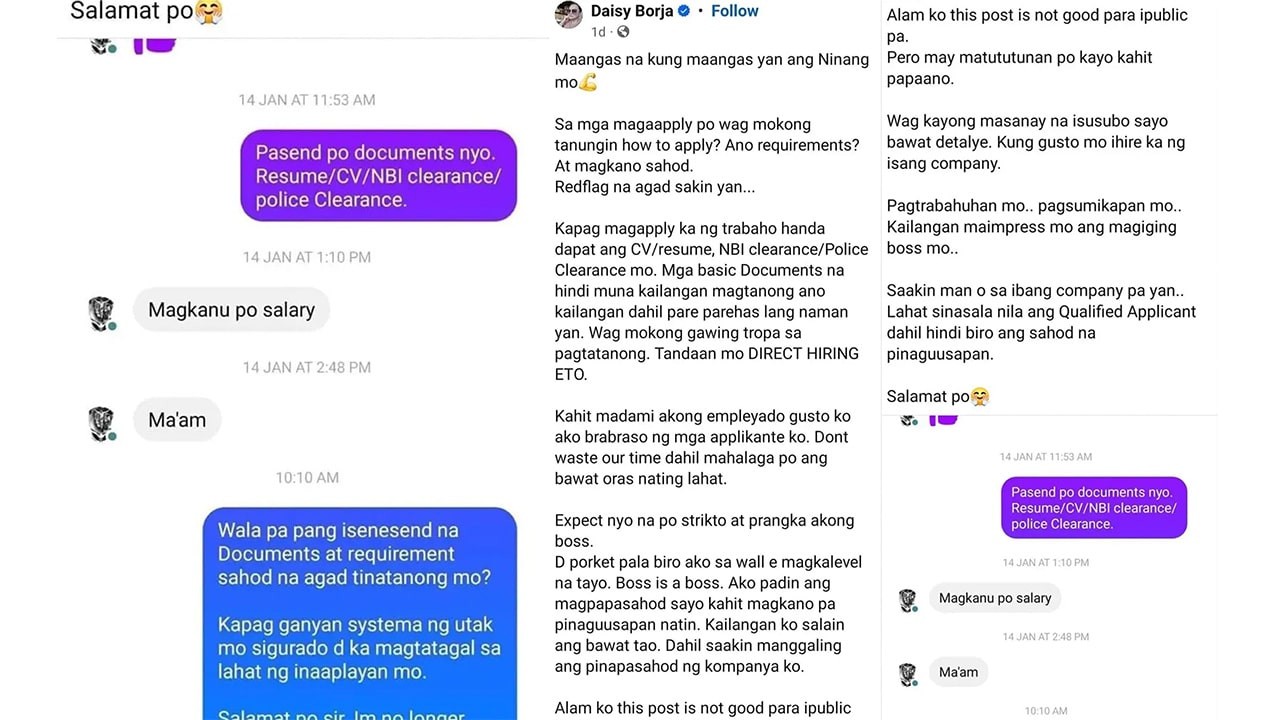
But was the applicant wrong? Or should companies disclose the salary range on job postings?
Yes. Right away. No question about it.
There’s no equitable justification for not disclosing the salary range. In fact, there’s really only one reason why companies would rather keep secret vital (and oftentimes already set-in-stone) information such as remuneration: they want to pay their employees as low as possible.
What companies overlook is that keeping salary a secret is often a waste of time. And if it wastes the company’s time, it’s a massive waste of money.
Twenty-two years ago – right after I graduated from college – a few of my friends heard me answer a phone call from a recruiter, describing a job opportunity. I was polite, energetic, and enthusiastic in the call, and at the end, I asked about the salary range for the position.
My friends – new graduates like me – were scandalized. They couldn’t imagine a fresh-from-school applicant having the balls to ask about the salary, more so having that conversation that early in the process. They thought I was, to put it mildly, presumptuous.
I explained to them that I wasn’t being overconfident or overly demanding. It was just pragmatism. I was living in the province and was supposed to support my sister who’s going to college. Working in the city meant transportation expenses or rent money, not to mention clothing, food, and all other essentials. I didn’t have rich parents who could sponsor me should my salary prove inadequate. So I sat down, did the math, and arrived at a minimum amount that I needed to earn – I grew up poor and was used to a simple life, so it was nothing outlandish. But it was non-negotiable. I couldn’t afford it otherwise.
Going to interviews when their salary range didn’t meet my income expectations would be a colossal waste of time – not just mine, but also the company’s. Years later, this lesson would be reinforced to me in a big way.
I was working in Epson Philippines as their PR & Online Manager when a headhunter called me and invited me to try for the position of PR & Advertising Manager at a multinational automotive company. I’m always open to exploring new opportunities so I gave her the green light and we started the engagement.
First, I met with a junior HR person for initial screening. Then the hiring manager in their Ortigas office. He shared with me his expectations, we talked about what I could do for them, and in the end, he liked what I presented. The next round of interviews was with Product Managers and I had to travel all the way to the company’s manufacturing plant in Laguna for the interview.
A week later, they called me back to Laguna to meet VPs (Directors?) for another panel interview. Both times that I went to Laguna, I had to drive for several hours, spend precious time waiting for the interviewers, and spend an hour or so for the interview itself. After this, I met with the Country Manager (back at the Ortigas office). And then, finally(!) the meeting with their HR head for the job offer.
To recap, these are the steps we took:
- 1-hour phone call with headhunter
- Meeting with junior HR officer
- Interview with Hiring Manager
- Panel interview with Product Managers (Laguna)
- Panel interview with VPs (Laguna)
- Interview with Country Manager
- Job offer with HR Head
In the first five engagements – from the call with the headhunter to the meeting with the VPs – they never failed to ask me about my salary expectations. I told them my current compensation package and indicated how much more I expected to make moving to a new company sensible for me.
When it finally came to the job offer stage, not only did they fail to meet my expected salary – their offer was even (much) lower than what I was currently getting from my current job. I remember I was so surprised, I even asked if they were giving me a car every year to compensate for the discrepancy. Honestly befuddled about this unbelievable fiasco, I asked how in Dilbert’s Hell did they allow this to continue for as long as it did when I already told them what I expected right from the start. They could offer me no logical explanation. “You get to work for a multinational company” was their only answer.
Even disregarding the blatant disrespect to the applicant, imagine the monetary value they lost in this process. They hired a headhunting agency. The man-hours spent by their executives. Hell, how much did that hour-long interview with the Country Manager cost them? It was so inefficient. So wasteful. And it could have all been prevented if they had been forthright about the salary range for the position right at the beginning.
Gone should be the days when applicants are treated like the company is doing them a favor. While companies try to find the best candidate in the talent pool, possible employees are also looking at whether it would be a good fit. Finding the right match between company and employee is a collaborative effort. Transparency right at the beginning will ensure that both parties are on the same page.
We’re both busy. Let’s not waste each other’s time.









